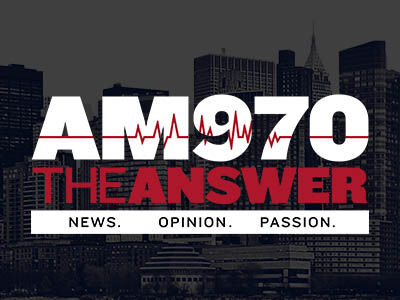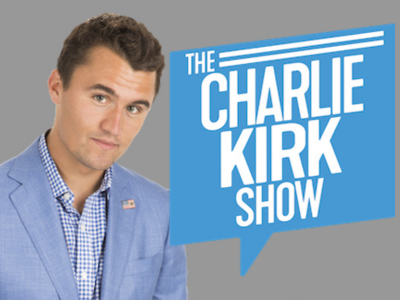Health clinics left reeling after federal grant freeze
News > Politics & Government News

Audio By Carbonatix
7:00 PM on Sunday, February 9
By Emily Schabacker, Cardinal News
Roanoke, VA (Cardinal News)
About half of Virginia's federally qualified health centers faced uncertainty as federal disbursements were delayed following President Donald Trump's executive order freezing grants. The order was quickly rescinded, but the disruption put added strain on the state's community health centers.
Tri-Area Community Health, which operates nine community clinics in Southwest Virginia, has relied on federal grants for 40 years. This month marked the first time CEO James Werth struggled to access the funds needed to cover wages for his 170 employees.
Every two weeks, he requests a sum through the grant portal, and the money is typically transferred to the health system within 24 hours. This time, an eight-day delay nearly caused financial havoc, forcing him to consider closing if the wait continued much longer.
According to the Virginia Community Healthcare Association, nearly half of the federally qualified health centers in Virginia floundered in the week after President Donald Trump attempted to freeze all federal grants. Although a memo outlining the plan was quickly rescinded, and a federal judge blocked the executive order from taking effect, the disruption led to funding delays that put these clinics at risk, said Joe Stevens, manager of the association.
Stevens declined to provide any details about the centers that experienced delays or closure.
Federally qualified health centers are nonprofit clinics that receive funding from the Health Resources and Services Administration. Often located in rural communities, they primarily serve uninsured and underinsured patients, offering payment on a sliding scale based on income and family size.
Virginia has 31 such centers that operate more than 200 clinics.
"It feels so out of our control," Werth said, adding that he reached out to U.S. Rep. Morgan Griffith, R-Salem; state Sen. Bill Stanley, R-Franklin County; and Del. Wren Williams, R-Patrick County, for help.
According to a staff member, Griffith's office had heard from only one center in Southwest Virginia experiencing delays. In response, the office contacted the Health Resources and Services Administration, the staffer said.
Stanley and Williams said they were unaware of the issue in their districts. Williams said he only knew of one FQHC in his district -- Patrick Springs -- which opened in August 2024.
House of Delegates Speaker Don Scott, D-Portsmouth, established a bipartisan committee last week to address the statewide impacts of Trump's federal funding and workforce cuts. During a press conference in Richmond on Thursday, he decried the funding delays, which he said resulted in some clinic closures, and he accused state Republicans of remaining silent.
In a press release, U.S. Sens. Tim Kaine and Mark Warner, both D-Va., noted that the Trump administration had not provided any guidance to those experiencing delays and said that they had signed a letter to the U.S. Department of Health and Human Services, highlighting the funding delays and emphasizing the role community health centers play in rural Virginia.
Tri-Area Community Health operates eight locations in Southwest Virginia, from Grayson County to Franklin County, plus a school-based clinic in Galax. It serves about 12,500 patients annually, totaling about 45,000 visits.
The system receives about $3.5 million in federal funds annually, accounting for 20% of its budget.
"We're a top employer in some of these smaller communities," Werth said. Federal grants allow the system to meet payroll, he said.
Federal grants typically make up 20% of the budget for most of these health centers, Stevens said. The rest of the budget comes from Medicaid and private insurance.
"We often describe it as a three-legged stool," Stevens said. "If one leg goes out, it collapses."
Medicaid and private insurance revenue can keep these facilities open temporarily, but without federal grants, many would likely close.
"It's important to remember that these clinics are out in the community, too, they're not just in brick-and-mortar buildings," Stevens said.
Many centers expand their reach into schools and through mobile health units. These services offer medical, behavioral health and dental services, reducing barriers to care such as transportation.
When funding is tight, those services are often the first to be cut, Stevens said.
Some centers still waiting for their grant funds have paused hiring, worsening existing workforce shortages, according to Stevens.
The industry is facing uncertainty across all its funding sources, said Jonathan Stewart, CEO of New Horizons Healthcare, a federally qualified health center in Roanoke.
After a judge blocked Trump's executive order, Stewart tested his access to the funding and was successful. His organization hasn't experienced any delays, but he said the psychological impact of the freeze was immense.
"We have a nest egg, but we are a very lean operation," Stewart said. "An impact like that would be cutting us to the bone."
Federal grants account for about $2.8 million of New Horizon's $14 million annual budget.
New Horizons serves about 10,000 people annually, totaling about 40,000 patient visits. About a quarter of the patients are uninsured.
Increased access to primary care often translates to lower expenditures by minimizing the need for high-cost interventions, Stewart said. Early intervention leads to better management of conditions that, if left untreated, can result in expensive hospital stays or emergency department visits.
"Access to primary care creates savings to the system that's revolutionary," he said.
That's why he and his colleagues are working to raise awareness about the role these centers play.
Stewart was at the General Assembly when news broke that Trump had signed an executive order to freeze all federal grants.
"People were just buzzing. The General Assembly is always a very active place, but this was at a level I had never seen before," Stewart said. "We were there to discuss oral health, but all that faded into the background."
His phone lit up with messages from employees worried about their next paycheck.
While Stewart believes that community health centers were unintended casualties of the federal grant freeze, he noted that most of the funding supports payroll -- the largest expense for these facilities.
He said he isn't concerned about another grant freeze, but potential Medicaid cuts could deal a severe blow to his clinics.
This story is provided as a service of the Institute for Nonprofit News’ On the Ground news wire. The Institute for Nonprofit News (INN) is a network of more than 475 independent, nonprofit newsrooms serving communities throughout the US, Canada, and globally. On the Ground is a service of INN, which aggregates the best of its members’ elections and political content, and provides it free for republication. Read more about INN here: https://inn.org/.
Please coordinate with [email protected] should you want to publish photos for this piece. This content cannot be modified, apart from rewriting the headline. To view the original version, visit: http://cardinalnews.org/2025/02/10/health-clinics-left-reeling-after-federal-grant-freeze/







